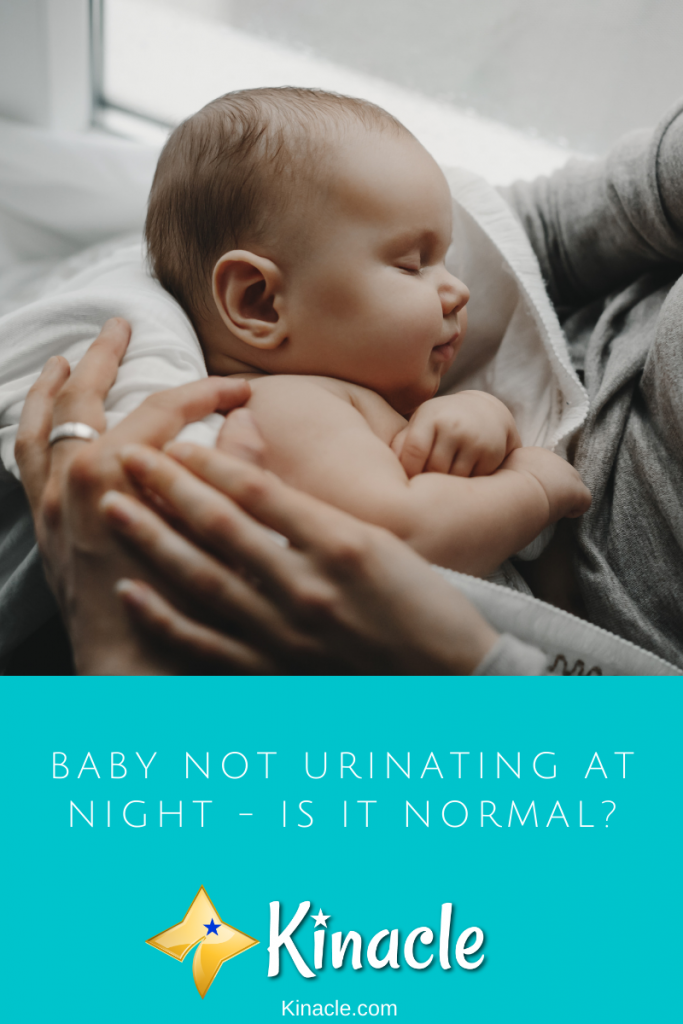
Urine and stool are essential indicators of our baby’s wellbeing, especially during the first few days of his or her life. This simply explains why parents are so engrossed on what they see on those dirty diapers. What if you suddenly noticed that the diaper is dry overnight? You may be wondering, is it normal for my baby not urinating at night? Let’s hear it from the experts.
How long can baby go without peeing?
According to the American Academy of Pediatrics (AAP), most newborns urinate every 1 to 3 hours, but it is still normal for them to urinate only 4 to 6 times in the entire day and night. Newborns have very tiny bladder that can only hold a small amount of urine, so you can expect only a minimal amount of urine every time they pee.
Some factors may also cut your baby’s urine output to half and still considered as normal. These include a very hot weather, fever, or an illness. A warmer body temperature or hotter external temperature will tell your baby’s body to retain fluids, thus resulting to a lesser urine output. On the other hand, if the weather is too cold, your baby will tend to conserve body heat, thus you’ll notice them urinating more frequently.
Is it normal if my baby didn’t pee all night?
As your baby grows older, the capacity of their bladder to hold more urine will be more evident. So it will be more likely for an older baby not passing urine for 6 hours. Older babies can already go 4 to 6 hours without passing any urine. They’ll also become more efficient in sleeping through the night, which may be a reason why you notice your baby not peeing overnight.
When to seek help for baby not peeing at night
Though it is pretty common for babies to pee less at night as they grow older, you must also be vigilant of the red flags when it comes to your baby’s urine. Here are some things to watch out for your next diaper change:
Dark-colored urine
Apart from the frequency, it will also matter a lot if you note down the color of your baby’s urine. Your baby’s urine color may range from light to dark yellow. A darker color means a more concentrated urine. This may indicate that your baby is drinking less fluids than they should be.
Blood-stained urine
Sometimes, you might notice a pink stain in your baby’s diaper that can be mistaken as blood tinge. Pink staining usually indicates a very concentrated urine. According to the AAP, this is usually fine as long as your baby is wetting at least 4 diapers a day.
However, fresh blood in your baby’s diaper is never normal. Though it may come from a minor diaper rash or sore, it is something that you should promptly report to your doctor for appropriate evaluation.
Pain while urinating
Your baby should pee without any sign of pain or distress. Abdominal pain or straining while urinating may be a sign of an infection in your baby’s urinary tract, which you must report to your doctor.
If your baby continues to pass out little to no urine in 4 to 6 hours, you’ll also need to take a closer look of the other symptoms that are being manifested by your baby. In some instances, less urine output may indicate dehydration in infants, which can be life-threatening. You may suspect dehydration in babies if you also notice the following symptoms:
- Dry mucous membranes in the lips, tongue and mouth
- Skin is dry and returns too slowly when pinched
- Sunken fontanelle or soft spot
- Dark circles under the eyes
- Rapid breathing and pulse
Once you notice that your baby is peeing less along with any of these symptoms, continue feeding your baby and seek medical consultation immediately.
Conclusion
Baby not urinating at night is usually a sign that they are old enough to hold more urine in their bladder or they are already able to sleep through the night. As long as your baby is wetting at least 4 diapers all day, it is usually not a cause of concern. However, peeing very little may also be a sign of something more serious. Hence, parents need to be mindful of the other symptoms and know when to seek medical help.
Disclaimer:
This article is for informational purposes only and should not be considered medical advice. Always consult with a doctor or licensed medical professional before making any medical decisions.
Leave a Reply